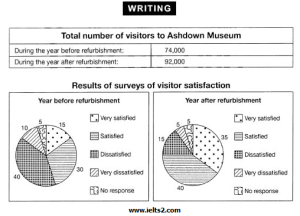نمونه سوال های اسپیکینگ آیلتس موضوع Rules
Law and Crime IELTS Speaking Part 3 Sample
اسپیکینگ آیلتس موضوع Rules یکی از رایج ترین تاپیک های اسپیکینگ و رایتینگ آیلتس در 10 سال گذشته بوده است. در اینجا تازه ترین سوالات سال 2024 را به همراه نمونه پاسخ های نمره 9 آن ها مشاهده میفرمایید. در ادامه همچنین ساختارهای گرامری سطح پیشرفته و لغات حرفه ای و بجای این نمونه جواب ها به باعث رسیدن این پاسخ ها به نمره کامل شده است را با هم مبینیم. دانلود رایگان بهترین منابع خودخوان آیلتس (سال 2024) و دانلود جزوه لغات دسته بندی شده موضوعی آیلتس پیشنهاد بعدی ما به شما عزیزان است.
نمونه سوال جواب نمره ۹ برای پارت سوم اسپیکینگ آیلتس
1. Do you think it’s important to teach children about rules and laws? Why or why not?
Answer: Absolutely, I believe it’s crucial to educate children about rules and laws from an early age. This not only helps them understand the importance of structure and order in society, but also instills a sense of responsibility and moral integrity. By learning about the rationale behind these regulations, children develop respect for them and are more likely to grow into law-abiding citizens. Without such understanding, the concepts of fairness and justice might be lost on them, potentially leading to harmful behavior in the future.
2. At what age do you think children should start learning about laws and rules, and why?
Answer: I think children should start learning about basic rules and the reasoning behind them as early as kindergarten, around the age of five. At this stage, they are beginning to comprehend right from wrong, and introducing them to simple rules lays a foundation for more complex concepts later on. As they grow older, perhaps around the age of 10 or 11, they can begin to grasp the broader context of societal laws. This gradual introduction allows children to internalize these concepts in a way that is appropriate for their cognitive development.
3. Should it be compulsory for children to know the laws?
Answer: In my opinion, while it may not be necessary for children to know every detail of the law, it should certainly be compulsory for them to have a fundamental understanding of key laws and societal norms. For instance, they should be aware of laws related to safety, such as traffic regulations, or the importance of respecting others’ rights. Making this education mandatory would ensure that all children are equipped with the knowledge to behave responsibly in society and understand the consequences of breaking laws.
4. How do you think children feel when they see someone breaking a rule or law?
Answer: Children, particularly younger ones, often have a heightened sense of justice and fairness, so witnessing someone breaking a rule or law can be quite upsetting or confusing for them. They may feel distressed, especially if they have been taught the importance of following rules. Moreover, seeing an authority figure or adult break the law might make them question the very principles they’ve been taught. In some cases, this could even lead to a sense of mistrust or disillusionment.
5. Should children be taught what to do if they see someone breaking the law?
Answer: Yes, I believe it’s essential that children are taught how to respond if they witness someone breaking the law. This can be done in an age-appropriate way, starting with simple instructions like telling a trusted adult if they see something wrong. As they mature, they can learn more about reporting such incidents to the authorities in a responsible manner. This knowledge not only empowers children but also fosters a sense of civic duty.
6. Should it be mandatory for schools to teach students about rules and laws? Why or why not?
Answer: Absolutely, schools play a pivotal role in shaping responsible and informed citizens, and I strongly believe that teaching students about rules and laws should be a mandatory part of the curriculum. Schools are not just academic institutions; they are environments where social and moral education takes place. By teaching students about the legal framework that governs society, schools contribute to their overall understanding of how to navigate and contribute to society as responsible individuals.
بررسی واژگان سطح پیشرفته در نمونه جواب های بالا
- Crucial: به معنای “حیاتی” یا “بسیار مهم”. این واژه بهجای “important” استفاده شده و سطح پیشرفتهتری دارد.
- مثال: It is crucial to educate children about laws.
- Instill a sense of: ساختار پیشرفتهای که برای توصیف القای یک حس یا نگرش استفاده میشود.
- مثال: Instills a sense of responsibility and moral integrity.
- Law-abiding citizens: ترکیب پیشرفته برای توصیف “شهروندانی که از قوانین پیروی میکنند”.
- مثال: They are more likely to grow into law-abiding citizens.
- Grasp the broader context: فعل “grasp” به معنای “فهمیدن” در ترکیب با “broader context” نشاندهنده توانایی درک مفاهیم گستردهتر است.
- مثال: They can begin to grasp the broader context of societal laws.
- Internalize: به معنای “درونی کردن” یا “درک عمیق از چیزی”. استفاده از این فعل نشاندهنده سطح بالای درک از موضوع است.
- مثال: Allows children to internalize these concepts.
- Disillusionment: کلمهای پیشرفته برای بیان “ناامیدی” یا “سرخوردگی”.
- مثال: This could even lead to a sense of mistrust or disillusionment.
- Civic duty: اصطلاحی برای بیان “وظیفه شهروندی”.
- مثال: This knowledge fosters a sense of civic duty.
- Pivotal role: به معنای “نقش محوری” یا “نقش اساسی”. این عبارت برای توصیف اهمیت مدارس در آموزش قوانین استفاده شده است.
- مثال: Schools play a pivotal role in shaping responsible citizens.
نگاهی به ساختارهای گرامری پیشرفته در نمونه های بالا
- Conditionals (شرطیها):
در پاسخ سوالات سوم و پنجم، از شرطیهای سطح بالا استفاده شده است:- If they witness someone breaking the law…
- If they see something wrong…
- Passive voice (مجهول):
در پاسخ به سوال ششم از ساختار مجهول استفاده شده که نشاندهنده مهارت پیشرفته زبانی است:- It should be mandatory for students to be taught about laws.
- Complex sentences (جملات مرکب):
جملات مرکب با استفاده از “that” و “which” در پاسخها، سطح زبان را بالا برده است:- The rationale behind these regulations, which helps children understand…
- Modal verbs (افعال کمکی):
استفاده از افعال کمکی مانند “should” و “might” برای بیان نظرها و احتمالات در پاسخها دیده میشود:- Children should start learning about rules early on.
- They might feel disillusioned…
سخن آخر
جدیدترین سوالات اسپیکینگ آیلتس موضوع Rules و قوانین را با جواب های نمره 9 با هم دیدیم. این لغات و ساختارهای گرامری در پاسخ سوالات اسپیکینگ آیلتس به ارتقاء نمره شما در بخش اسپیکینگ آیلتس کمک میکنند. قوانین تعیین نمره اسپیکینگ آیلتس در آموزش جداگانه به طور کامل توضیح داده شده است. این آموزش از یکی از سایت های مرجع آموزش زبان را در همین زمینه به شما عزیزان پیشنهاد میکنیم. ضمنا هر سوالی برای شما مطرح هست با در بخش کامنت ها در همین صفحه یا در گروه آموزش رایگان آیلتس ما در تلگرام حتما مطرح بفرمایید ❤️







